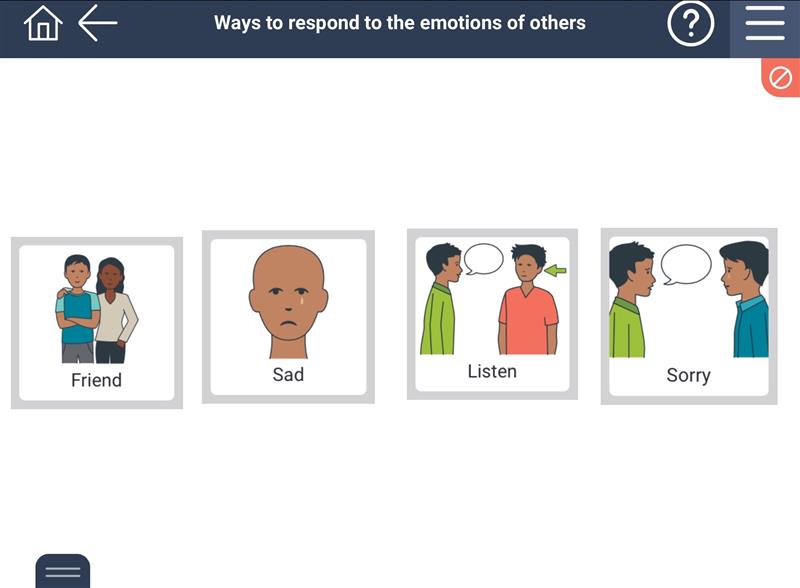Ways to respond to the emotions of others
You can save a PDF of this lesson by printing this page and clicking “Save to PDF”
This lesson supports curriculum codes:
- ABLEWA Stage D (VCHPEP047)
- Pre-primary (ACPPS005)
- Year 1 (ACPPS017)
- Year 2 (ACPPS020)
- Year 3 (ACPPS035; ACPPS037; ACPPS038)
- Year 4 (ACPPS055; ACPPS056)
- Year 5 (ACPPS052; ACPPS055; ACPPS056)
- Year 6 (ACPPS052; ACPPS055; ACPPS056)
- Year 7 (ACPPS072)
- Year 8 (ACPPS071; ACPPS072; ACPPS075)
- Year 9 (ACPPS090; ACPPS091; ACPPS093; ACPPS094)
- Year 10 (ACPPS091; ACPPS093; ACPPS094)
Overview
The aim of these lessons is to help students increase their awareness of other people’s emotions and to develop strategies for reacting appropriately. Empathy and reflective listening are often difficult concepts, particularly for students diagnosed with Autism Spectrum Disorder. This section may require repetition over time and generalisation to real life situations to support the development of socially appropriate behaviours.
Foundation Knowledge for this lesson includes identification of at least one emotion in themselves or others and ability to differentiate between self and others.

Generalisation ideas
- Sorting: Use the No box to sort appropriate or expected responses and inappropriate or unexpected responses
- Talking through scenarios: Give examples of peers experiencing different emotions and identify images that convey how you think you would respond.
- Using real-life examples: Use images to describe events in your learners life.
- Consequences of appropriate vs inappropriate responding; consequences of behaving in noncongruent ways such as standing close to someone who is angry; hitting someone when you’re angry; hugging a stranger when you feel sad; considering how the way you respond can positively influence your relationship
- Flipsides: learning about behaviours that match key emotions; acceptable and unacceptable expressions of emotion; developing strategies to cope with difficult situations and the demands of others.
- Create a social story
- Use music to generate different emotions for self-reflection
- Developing awareness of when to seek help from a trusted adult
